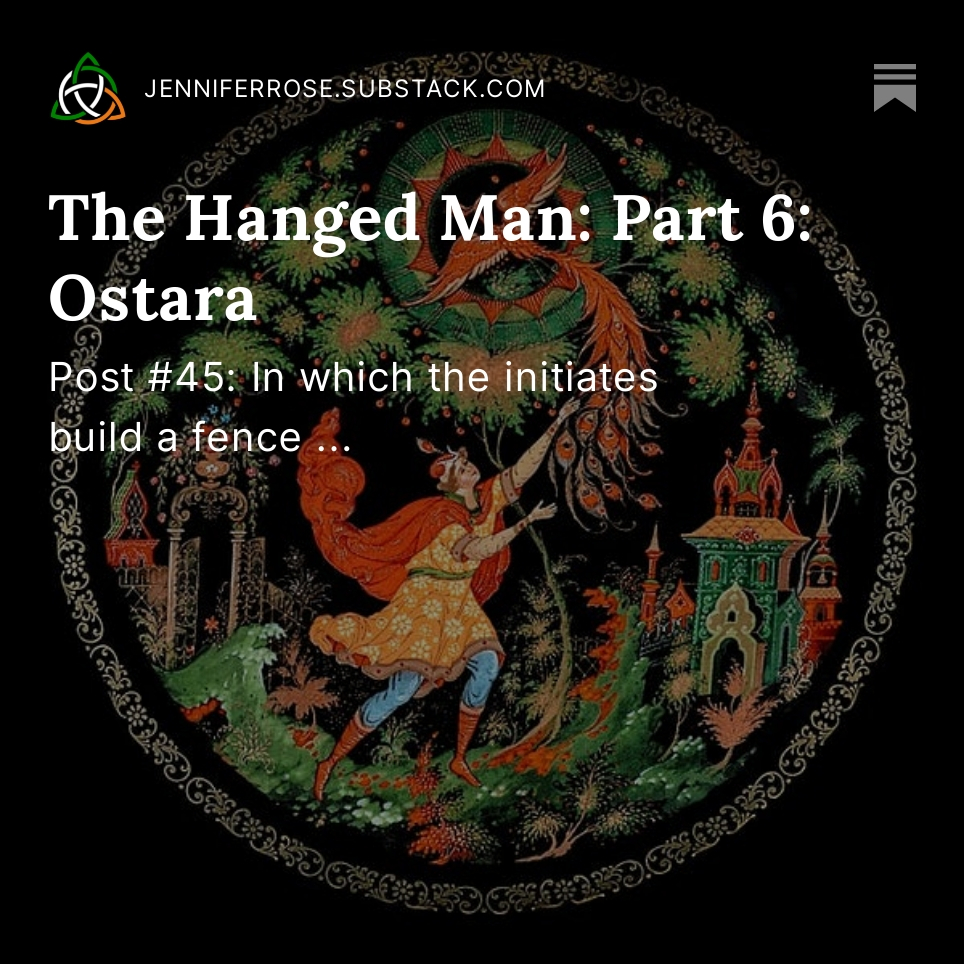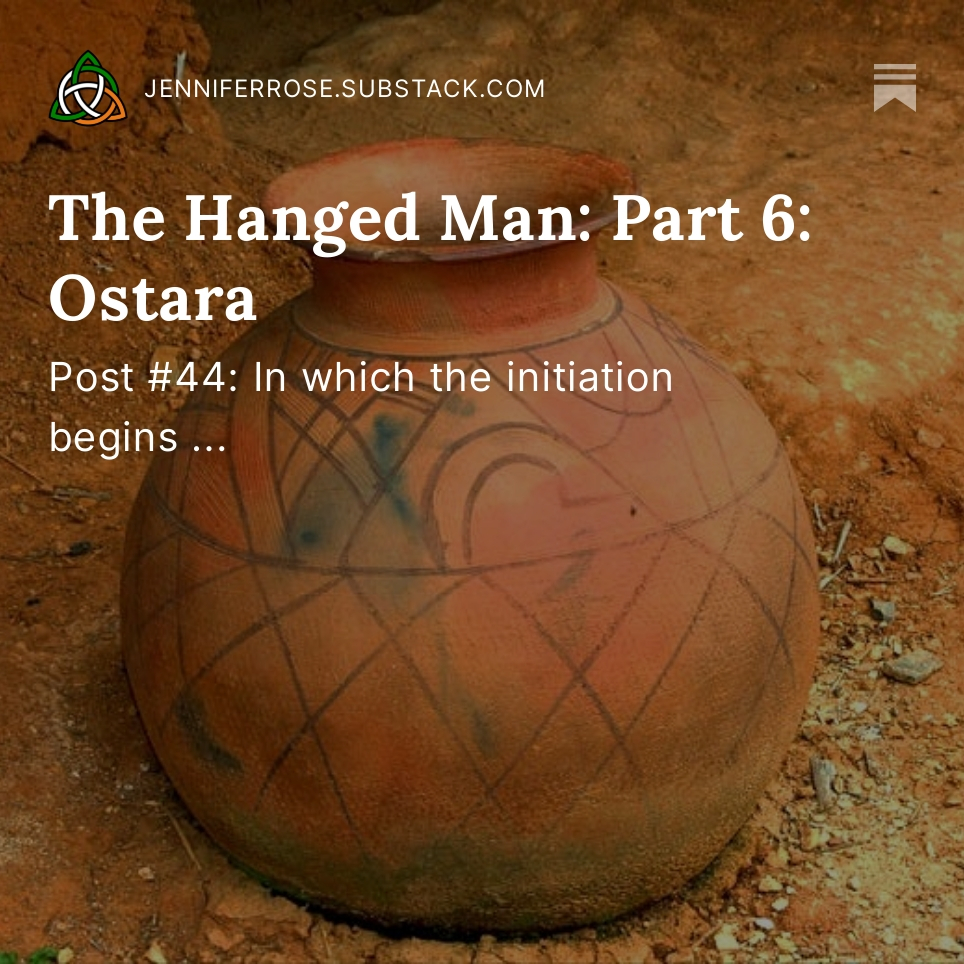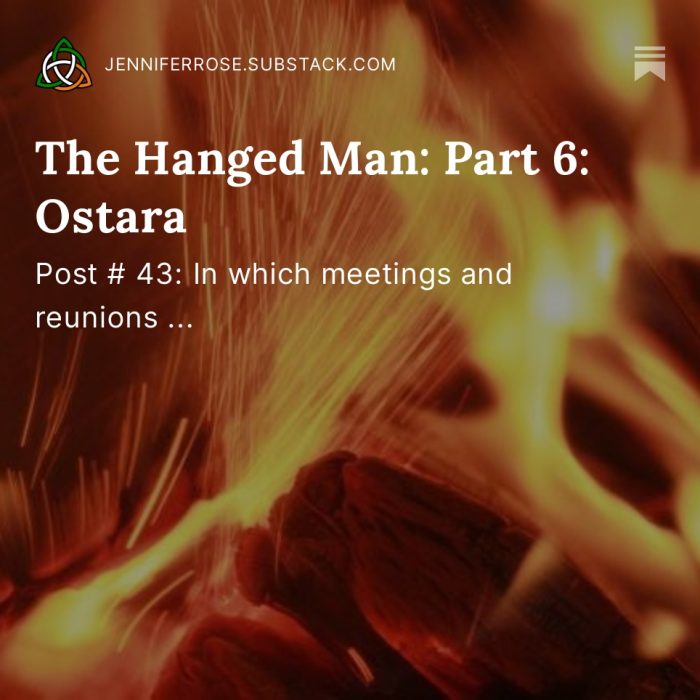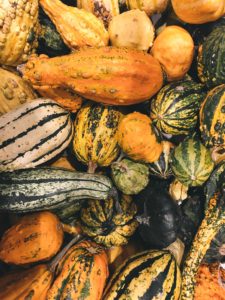by Jenny Rose | Oct 29, 2022 | Emotional Intelligence, Feelings, Love
Except I’m not. Balancing, I mean.
A few weeks ago I came across a quote: “Grief is just love with nowhere to go.” Backtracking through multiple sources, I ran it down to a woman named Jamie Anderson who wrote it in her blog, which is now gone. The quote went viral.

Photo by Joshua Earle on Unsplash
It hit me right in the heart.
I’ve written previously about my struggle with intense love that is not received. I don’t mean unrequited romantic love. I mean flesh-and-bone love, blood love, the helpless love and connection we feel for family.
My strategy all my life has been to divert the love I feel but can’t give to the intended recipient (at least not in a way I feel they receive and believe in it or even want it) to others who do need and want it. This practice relieves some of the pressure in my heart, but there are several ways it can go badly wrong. Plenty of people in the world will suck up all the love, attention, and support we give them, but have no thought, or perhaps no ability, of returning it. In this case, my painful, overfull heart becomes withered and empty and I have to detach the vampire I’ve attracted.
I’m not looking for a place to dispose of my love like it’s a worn-out sock. I’m looking for a place where it does some good. Because that’s at the heart of feeling love one can’t give – the futility of it. What’s the point of love if we have no place to give it, if love has nowhere to go?
There are places where I feel my love has been useful. Animals. Children. Hospice work. Emergency rescue work. But, aside from animals and my own children, none of these are intimate relationships sustaining me day-to-day. Animals, sadly, have shorter lifespans than we do. Children, inevitably, grow up and find their own lives, which may or may not include us.
I’ve been thinking about this quote for several weeks, intending to blog about it at some point, but always turning away from it into other subjects. It hurts to think about it. I know intellectually writing about pain helps, but loyalty to those who refuse my love stops me. Or maybe shame? Or maybe guilt? (If a family member won’t accept our love, surely the logical conclusion is we’re a terrible person?) Also, I don’t want to hurt anyone’s feelings, or be unfair, or humiliate another person.
I can always find something to write about. I’ve been posting weekly for six years. But there’s much I do not write about. Too painful. Too intimate. Too risky. Too messy.

Photo by Jason Blackeye on Unsplash
Sometimes life is like a boxing match. I have good stamina, and I’m dogged as hell. I’m organized and efficient. I try to think clearly about my choices. I’m thoughtful. But every now and then life knocks me down. Hard.
Usually I cope with vigorous exercise, writing, getting a good night’s sleep, and processing with a friend. I get back on my feet and keep going.
But every few years the blows keep coming, hard and fast, unexpected hooks and jabs.
This has been one of those times. I’m nursing my third upper respiratory infection in four weeks. Not COVID, but one of the many other plagues circulating this fall. I’ve once again pulled out the essential oil, the powdered vitamin C, the elderberry and echinacea tea, the nasal spray, the cough and cold medicine. I don’t usually take medication of any kind, but on this third round I feel so bruised and battered I’m choosing to. I’m tired out.
In between this virus, which arrived Thursday night, and the last one, which departed Monday, we discovered our dirt-floored cellar was ankle deep in water due to several inches of recent rain which caused some flooding. It’s going to take more than a thousand dollars to fix it.
Then, yesterday (Can it only be yesterday? It feels like weeks.) I was informed about the illness and injury of a family member, one of those people I love most in the world who is unable to receive it and has amputated me from their life. Now, a long way away from me as I sit here in Maine with a Kleenex box, another family member (another of my dearly loved ones) is carrying the whole situation on their shoulders: the hospital, surgery, legalities, finances, paperwork. My presence would only exacerbate the situation and make everything worse. I know it. The family member managing the crisis knows it.
So here I sit, wretched, broke, sick, and I can do nothing – nothing. A lifetime of petrified love weighs like a stone in my chest. It has nowhere to go. It never has. It’s not useful. It’s not wanted. But I can’t stop feeling it. It’s part of me.
And I’m down for the count. I’m all the way down and nothing in me is ready to get back up. My eyes are swollen. I can’t stop crying. I don’t know where the cold begins and the grief ends. All this grief, a lifetime of grief. It feels endless, bottomless. I don’t think there are enough tears in the world to wash it away. I can do nothing but wait for news and try to be a long-distance support to the one who will accept my support. I can’t seem to get and stay well. I can’t fix the cellar. A plumber in hip boots with a new sump pump will do that early next week.
How can the truest, deepest love we feel be refused and rejected?
Rhetorical question. I don’t expect an answer. I’m sure I’m not the only one who has ever asked that question. Some things just can’t be understood. They’re not fair. They’re not explicable. They’re just life. I learned some time ago to cease arguing with what is.
And what is, right now, is grief. I can’t contain it, control it, avoid it, distract myself from it. I won’t share it, except in words. I’m simply letting it wash through me, surrendering to it. Maybe that’s what I need most today. Maybe the laundry, emptying the trash (all that soggy Kleenex), my usual weekend posting and publishing, raking leaves, dumping the compost, washing dishes, and all the rest of it doesn’t matter. Maybe I can’t get back on my feet until I’ve chosen to just stay down first.
How long do we have to cry to drain a lifetime of grief?
Don’t tell me. I don’t want to know.
This is not my usual kind of post, but it is a stay down, raw, naked one. It’s what I’ve got this week. It’s the best I’ve got.
On another note, I am expanding the site. I’m adding excerpts from my books to The Webbd Wheel page. Scroll down past the overview for the excerpts. If you’re intrigued, you can go to my Substack page and read for free as I serial publish my fiction. You’ll find extensive archives, so you can read from the beginning if you wish.
To read my fiction, serially published free every week, go here: 
by Jenny Rose | Oct 22, 2022 | Emotional Intelligence, Fear, Feelings
I’ve been sick for the last week. Not COVID, just a heavy cold, likely acquired from one of my giggling, spluttering, young swim students.
To be sick is to be in an alternate reality. Life goes on outside my windows. The neighbors come and go. The mail comes. They’ve been paving streets in the neighborhood. It’s rained. I’ve watched leaves falling and wished I felt well enough to go out and rake them into my garden beds. I’ve missed being out in the world. I’ve missed work. I’ve missed my friends. I’ve missed swimming and exercising.

Photo by Autumn Mott on Unsplash
I’ve had a lot of time to read, and to think. I follow a writer on Substack, Jessica Dore. She writes about the Tarot, myth, and story, and I rarely read her without new insight and perspective on my own work in these subjects. In one of her recent posts, she explores an old story dealing with wounds, suggesting there may be wisdom in “letting the wound live.” Culturally, we are focused on healing, on fixing, on freeing ourselves and others from pain. Allowing wounds to stay open is a challenging and uncomfortable idea, but some part of me senses wisdom may indeed lie within it.
I’ve been thinking about letting wounds live as I surrender to whatever virus is operating in my system right now. Not thinking logically and linearly, but allowing it to float and drift through my mind, making tenuous connections with other things I’m reading, old memories, half-waking dreams as I cat nap on the couch.
Another idea I’ve come across lately is turning weaknesses into strengths. This is my favorite kind of alchemy. I’ve always considered my wounds to be weaknesses. Could they be strengths?
We moved in May, and I’m still figuring out how best to fit my furniture into my space. I bought myself a badly-needed new mattress and a high bedframe to hold it. High because I have no closet in my bedroom and I want to store clothes under my bed. Love the mattress, love the frame, but the bed is now so high (I feel like the princess and the pea on top of twenty mattresses!) my bedside table is ridiculously low and inadequate. I had to lean out of bed to use it.
I have a tall wicker basket with a hinged lid. When I was a child my brother and I used it as a laundry hamper. I’ve taken it with me from place to place all my life. It’s the perfect height for my bedside table, nice and roomy on top, storage inside.
I have an old wound connected with that basket.
When I was about nine years old we lived in a big house in the Colorado mountains in a very small town. My brother and I had a playroom, a bedroom each, and a bathroom downstairs in the finished basement. The wicker hamper lived in our bathroom next to the tub/shower.
I was a fearful child, terrified of the dark, constantly anxious, with a vivid (fervid?) imagination. One evening I went in the bathroom, shed my dirty clothes and put them in the hamper, and took a bath. All was well (what’s better than a hot bath and a book?) until the tub was filled and I turned the water off.

Photo by Peter Forster on Unsplash
The hamper creaked. Then it cracked. Then it skritched. Long silences in between noises. I had never noticed this before, and I was immediately terrified. All the unnamed, half-understood fears in my young heart coalesced into the utter certainty there was a monster in that hamper, and my life depended on escaping its notice.
I froze, my book clutched in my fingers. I didn’t dare read because I was afraid of the whisper of turning a page. I didn’t dare move. The door was closed. My parents were far, far away upstairs. I got cold, and then colder. Reaching for the hot water tap was out of the question. I’d have died first.
The hamper creaked, and cracked, and skritched.
Eventually, what seemed like hours later but was probably much less than that, although the water was unpleasantly cool by then, my mom came to check on me and found me there, fixed in place with a terror I could not adequately express. That was the problem. If I’d been able to talk about my fears they likely wouldn’t have been so overwhelming.
I’ve never forgotten that evening, and how real and visceral my terror was. I knew, I knew some dark and deadly horror crouched in that hamper, listening, scenting prey, slobbering, waiting to pounce. I knew there was no help for me. No one would hear. No one would protect me.
In spite of that old trauma, I’ve always loved the wicker hamper. It still creaks and cracks with temperature change and use, but it strikes me as friendly now, rather than sinister.
An old traumatic wound. It joined others wounds made by the claws of fear. I’ve written before about my fear of the dark, which haunted me for the first three decades of my life. Fear of uncertainty. Fear of disappointing others. Fear of scarcity. Fear of the adult world I could not possibly understand. Fear of abandonment.
Fear is an old and loyal companion.
How could it possibly be a strength? Surely nothing is quite so pathetically weak as constant fear?
As I was pondering this, I came across a poem by Rainer Maria Rilke, one of my favorite poets, translated by another of my favorite poets:
You Darkness
You darkness from which I come,
I love you more than all the fires
that fence out the world,
for the fire makes a circle
for everyone
so that no one sees you anymore.
But darkness holds it all:
the shape and the flame,
the animal and myself,
how it holds them,
all powers, all sight –
and it is possible: its great strength
is breaking into my body.
I have faith in the night.
Translated by David Whyte.
Rilke understood darkness. So does Whyte. Poets. Writers.
Writers like me.

Photo by Joshua Fuller on Unsplash
So much of my writing is about shadows and darkness, the hidden thing, the unspoken secret, the uncertain future, the truths nobody dares tell … until someone does. Someone like Pandora, who opened the box anyway. Someone who blows the whistle, blows the cover. Someone like Baba Yaga, or the child who said aloud, “the emperor has no clothes!”
I am surely not the only child of fear. Perhaps we all hold its hand, or perhaps some of us are more intimate with it than others. I don’t know. What I can sense is its paradoxical nature. Fear defines courage. How often does it define, at least in part, art? Think of Vincent Van Gogh, for example.
Fear defines courage. Yes. I believe that. Courage is strength. I believe that, too.
Then it must follow that fear is not weakness. Fear has wounded me, but it hasn’t made me weak. Rather the reverse.
If things had been different in my life, if I’d never felt the degree of fear I did and do, if somehow I’d found a way to heal myself of fear’s wounds and be free of it, I would not be the writer I am. I might still be a writer, a different kind of writer, but I would not have written The Webbd Wheel series or this blog.
All my work and much of my empathy are rooted in the compost of living, breathing, bleeding fear and the wounds it’s torn in my psyche. Fecund wounds. What a strange idea.
I leave you this week with a final thought from David Whyte:
… the place you would fall becomes
in falling
the place you are held.
From “Millennium”
To read my fiction, serially published free every week, go here: 
by Jenny Rose | Oct 15, 2022 | Emotional Intelligence, Fear, Feelings
One of my favorite filters through which to make choices is the question: Who benefits if I do this? Who benefits if I don’t do this?
It’s a deceptively simple question on the surface. Most of the choices we make in an hour, a day, are unconscious. We don’t take the time to think about them. We go with our instinct or impulse, we take the path of least resistance, we default to our familiar routine, we choose the most comfortable thing. Pausing to think our choices through slows us down and makes us uncomfortable.

Photo by Jonathan Simcoe on Unsplash
Unconsciousness is so much easier!
Last week I wrote about making choices, paths and no-paths, trying to navigate my life journey according to what works best for me, makes me happiest, and creates a life true to my particular values rather than doing what everyone else seems to be doing and following the most trampled trails. You know a lot of trash gets left beside the most heavily used roads, right?
I make many choices out of fear. I suspect we all do, but I won’t presume to speak for anyone but myself. In fact, I’ve posted about fear-driven choices before on this blog, years ago. Interesting, how we can spiral around and around in life, going a little deeper with each iteration.
Let’s take, for an example of a fearful choice, our own personal economic situation, whatever it is. If we are afraid to keep our accounts balanced, budget, open our bills, call a plumber, or commit to some kind of savings account, who benefits? Seriously. It’s a real question. Who benefits when we avoid dealing with our financial situation?
Any lender or business entity who charges interest or late fees benefits. Our bank benefits in overdraft or returned payment charges. Capitalism benefits if we don’t manage our spending habits and can’t resist advertising. Nameless, faceless institutions and corporations benefit from our fear. It’s in their best interests to complicate, obfuscate, create pitfalls and loopholes, offer “deals” and “sales.”
Who benefits when we put off dealing with a frightening physical sign or symptom, or facing an addiction? Both situations have the potential to get much worse, more frightening, more deadly, more expensive. So who benefits when we choose to deny, avoid, ignore what’s happening?
Who benefits when we sabotage ourselves, when we don’t choose to live according to the highest expression of who we are? Who benefits when we silence ourselves or allow others to silence us? Who benefits when we refuse risk, vulnerability, passionate creativity, joy?
I have never made a fear-based choice that didn’t eventually come back around and bite me in the ass. Most of us know the feeling of “what was I thinking?” Making the easiest or most seductive choice in the moment can mean years of cleaning up consequences and eventually having to revisit the original choice point and try again, hopefully with more wisdom.

Photo by Nicole Mason on Unsplash
And if we do circle back around, fear is still there. What if I get it wrong again? What if I fail? What if I can’t do this one thing I want to do more than anything else? What if the other kids laugh at me? What if I miss out on what everyone else is doing? What if this is my last chance?
“What if …” is nearly always the voice of fear, and it frequently stops me in my tracks. I can think of ten ways every choice might be the wrong one. All my demons throw a party and I’m stuck, locked in the bathroom without a friend or a way home while listening to them smash up the furniture..
Why do I make choices that benefit my fear? According to Oxford Online Dictionary, fear is a feeling arising from the belief that someone or something is dangerous, likely to cause pain, or a threat.
A feeling arising from a belief. Contrary to the increasing fanaticism and extremism infecting our culture, a belief is not necessarily true. We can and do change our beliefs.
Belief is a choice.
As for the feeling of fear, we are psychobiologically wired to feel it because it’s a survival mechanism. Our ancestors felt it and effectively responded to it; if they hadn’t, we wouldn’t be here.
Feeling fear is not the tricky part. What we choose to do with the feeling is. Do we use it as the good tool it is, or do we let it stop us, take away our power, keep us imprisoned?
More than that, do we feed it? Do we choose to benefit it?
If we allow our fear to take over our lives, as opposed to harnessing it to keep ourselves whole and healthy, who benefits?
No one and nothing but our fear.
Do we want to benefit a feeling based on a belief?
When I look at the world around me, that seems like a dark, well-trodden path with a lot of trash left beside it. I don’t see that particular path leading to any true connection, opportunity, or healing.
It’s not what I want. It’s not what I choose to do.
There’s enough fear in the world without me adding to it or enabling it, even in my small sphere.
Fear is for taking immediate, life-saving action. Or for weighing the pros and cons of a risky activity or choice. Or for directing our attention to a potential threat, a real threat, like the stranger peering in our window, not a belief.
We can benefit from our appropriate response to fear. Let’s not allow fear, or anyone manufacturing it, to benefit from us.
To read my fiction, serially published free every week, go here. 
.
by Jenny Rose | Oct 1, 2022 | Connection & Community, Emotional Intelligence
What happens when we disagree?
Not if we disagree, but when. Because we will always disagree eventually. Always.

Photo by roya ann miller on Unsplash
Is that bad?
It depends who you ask!
Disagreement, or lack of consensus, is going to happen whenever two or more of us are interacting. Why, then, has it become so risky, this perfectly normal opportunity to show our work or learn another point of view? Why are we so insecure we can’t tolerate the slightest disagreement? Are our egos so fragile we can’t stand to be wrong or rethink a position? Does our fear of moral condemnation outweigh our ability to consider ideas and information (facts) clearly and critically and speak honestly about our conclusions?
When did differing opinions become a matter of hate and violence, and speaking our truth start leading to such brutal consequences?
Do we no longer understand how to agree to disagree?
Will authoritarianism ever lead to true agreement, or is the best we can hope for a sullen silence and mandated obedience?
(Don’t forget the French revolution.)
Certainly, it appears more and more people value power over truth, rigidity over resilience, and mindless agreement over genuine collaboration and teamwork.
If we must be in agreement all the time, there’s no hope of true cooperation and we each remain locked in our own narrow impoverished bubble, interacting only with those whose bubbles look exactly like ours. Except I don’t know of anyone who has exactly the same bubble as another. But then we’re experts at constructing believable facades.
Insisting on 100% agreement all the time guarantees cultural collapse. We can’t do it. We’re not made that way. It’s a social dead end for humanity. We cannot thrive or even survive without a healthy complex social system among our own kind as well as with countless other forms of life.
The friction of disagreement, of difference, is essential. It keeps us flexible and demands we exercise our learning and listening skills as well as use our imagination and empathy. Disagreement is a sign of respect and caring, both for ourselves and our point of view and experience, and for others. If we care enough to disagree openly and peacefully, we’re signaling our willingness to make an authentic commitment and contribution. We’re not sitting back accepting brainwashing passively, but actively participating and engaged, examining, exploring, and asking questions about whatever is in our attention.
At least some of us are.
Others demand an environment of complete agreement with no questions asked. Heavy social penalties occur if someone steps out of line. There is no negotiation, no cooperation, no discussion, no new information or showing of work. You will agree and obey. Or else.

Photo by James Pond on Unsplash
Fortunately, we humans have a wide rebellious streak, some more than others. Certain people are never going to sit down and shut up. Certain people do not worship the status quo, especially if it doesn’t serve the majority. These folks disagree, and they say so. They provide information (facts) to back up their point of view. They ask inconvenient and uncomfortable questions. They shine the clear light of critical thinking on issues and ideology.
They don’t drink the Kool-Aid.
Disagreement does not need to be a call to arms. It’s not hate. It’s not disrespect or intolerance. It’s not prejudice or bigotry. It doesn’t mean we have to cut perfectly healthy relationships out of our lives. Disagreement is a chance for connection and an expanded empathy. It’s an opportunity to learn. Disagreement is a sign of diversity, and a diverse system is a healthy one.
A system in which disagreement is forbidden cannot thrive, adapt, and grow. It’s brittle and stunted, just like the scared, shriveled human beings controlling it.
Want peace? Want tolerance, justice, and respect? Learn, demonstrate, teach, and support the kind and gentle art of disagreement.

Photo by Brigitte Tohm on Unsplash
by Jenny Rose | Sep 17, 2022 | Connection & Community, Emotional Intelligence
It’s in the moment we take our eyes off the road and the car in front of us to reach for our water bottle that it happens.
It’s in the moment we’re preoccupied with our distress over a fight we had with a loved one before we came to work that we miss something key in the meeting.
It’s the moment of emotional reaction, the moment of distraction, the moment in which we’re trying to manage our feelings that provides an opening for accident, miscommunication, injury, even violence.
Windows are openings in boundaries, in walls and barriers and closed, airless cells. They allow egress and entry, movement. Sometimes air, sunshine, and birdsong come in and our best selves go out. Sometimes monsters and demons crawl in and our worst selves go out.

Photo by Craig Whitehead on Unsplash
Predators of all kinds look for windows, openings in our defenses, in our boundaries. Windows that can be cracked, wedged, broken, pried. Their tools are ideology, lies, personal attacks, misdirection, denial, silencing, and threats.
If our emotions can be controlled, if distrust and drama can be manufactured, if we can be put on the defensive, our windows become open holes. We are no longer able to open and close them at will, control what comes in and what goes out.
When our ability to think critically and be proactive is overwhelmed by our reactions and defenses, we cannot make thoughtful choices. We no longer have the energy and presence to look, listen, feel, and think about what we’re hearing or seeing. Our emotions hold us captive, and whoever controls our emotions has our power.
Emotional manipulation is seductive. We become attached to exercising our outrage. Our fear is addictive, so addictive we employ denial and cling frantically to what we want to believe, what we want to hear.
Predators need not show their work, cite their sources, or back up their assertions. They need not tell the truth or undergo the tension of collaboration and cooperation. They don’t need to waste their time with civil discourse, learning new information, or considering other points of view.
All they need is a lust for power and an open window. Like the screen you’re reading this on.
Oppositional energy and inflammatory language are short cuts, toxic mimics for true discourse and contribution. They provide a hiding place for those hunting for power and control, those unable to think critically or master information.
If we’re busy arguing, defending, and being distracted by our emotional hijack, we can’t evaluate situations and people clearly. If we can’t get a grip on a situation, perhaps somewhere in the background a predator has jimmied a window or two and successfully invaded our house.
Toss them out.
And then let’s repair our windows.

Photo by Henry Be on Unsplash
by Jenny Rose | Aug 27, 2022 | Connection & Community, Emotional Intelligence
A little over three years ago I wrote a post titled “Questions Before Engagement.”
Since then, the world has changed, and so have I.
I’m not on social media, but my biggest writing cheerleader is, and he tells me people are talking about how to recognize red flags. He suggested I post again about problematic behavior patterns.
A red flag is a warning sign indicating we need to pay attention. It doesn’t necessarily mean all is lost, or we’ve made a terrible mistake, or it’s time to run. It might be whoever we’re dealing with is simply having a bad day. Nobody’s perfect.

Image by Gerd Altmann from Pixabay
A persistent pattern of red flags is significant. Ignoring problematic behavior sets us up to get hurt.
The problem with managing red flags is we may be flying several ourselves, and until we figure out our own behavior we’re going to struggle to deal effectively with others.
We all have an excellent built-in system alerting us to possible danger. We call it intuition, going with our gut, or having a hunch or a feeling. We may not know why we feel uneasy, but we subconsciously pick up on threatening or “off” behavior from others. The difficulty is we’re frequently actively taught to disregard our gut feelings, especially as women. We’re being dramatic, or hysterical, or a bitch. We’re drawing attention to ourselves, or making a scene. What we saw, heard or felt wasn’t real. It didn’t happen, or if it did happen, we brought it on ourselves.
We live in a culture that’s increasingly invalidating. Having a bad feeling about someone is framed as being hateful, engaging in profiling, or being exclusive rather than inclusive. Social pressure makes it hard to speak up when we feel uncomfortable. Many of the most influential among us believe their money and power place them above the law, and this appears to be true in some cases. In the absence of justice, we become apathetic. What’s the point of responding to our intuition and trying to keep our connections clean and healthy when we can’t get any support in doing so?
If we grow up being told we can’t trust our own feelings and perceptions, we’re dangerously handicapped; we don’t respond to our intuition because we don’t trust it. We talk ourselves out of self-defense. We recognize red flags on some level, but we don’t trust ourselves enough to respond appropriately. Indeed, some of us have been severely punished for responding appropriately, so we’ve learned to normalize and accept inappropriate behavior.
So before we concern ourselves with others’ behavior, we need to do some self-assessment:
- Do we trust ourselves?
- Do we respond to our intuition?
- Do we choose to defend ourselves?
- Do we have healthy personal boundaries?
- Do we keep our word to ourselves?
- Do we know how to say both yes and no?
- Do we know what our needs are?
- Are we willing to look at our situation and relationships clearly and honestly, no matter how unwelcome the truth might be?

Photo by freestocks.org on Unsplash
Once we’ve become familiar with our own motivation and behavior patterns, we can turn our attention outward and focus on the behavior of those we interact with.
Red flags frequently seem too bad to be true. In intimate relationships with partners and family, the anguish of acknowledging toxic or dangerous behavior and setting limits around it cannot be overstated. Those we are closest to trigger our deepest and most volatile passions. This is why it’s so important to be honest with ourselves.
The widest lens through which to examine any given relationship is that of power-over or power-with. I say ‘lens’ because we must look and see, not listen for what we want to hear. Talk is cheap. People lie. Observation over time tells us more than words ever could. In the case of a stranger offering unwanted help with groceries, we don’t have an opportunity to observe over time, but we can say a clear “no” and immediately notice if our no is respected or ignored. We may have no more than a minute or two to decide to take evasive or defensive action.
If we are not in an emergency situation, or dealing with a family member or person we’ve known for a long time, it might be easier to discern if they’re generally working for power-with or power-over. However, many folks are quite adept at using the right words and hiding their true agenda. Their actions over time will invariably clarify the truth.
Power-over versus power-with is a simple way to examine behavior. No labels and jargon involved. No politics. No concern with age, race, ethnicity, biological sex, or gender expression. Each position of power is identifiable by a cluster of behaviors along a continuum. We decide how far we are willing to slide in one direction or another.
Power-Over
- Silencing, deplatforming, threatening, personal attacks, forced teaming, bullying, controlling
- Win and be right at all costs
- Gaslighting, projection, DARVO tactics (Deny, Attack, Reverse Victim and Offender)
- Fostering confusion, distrust, disinformation, and violence
- Dishonesty
- Poor communication and refusing to answer questions
- Emotional unavailability
- High-conflict behavior
- Blaming and shaming of others
- Refusal to respect boundaries
- Inconsistent
- Refusal to discuss, debate, learn new information, take no for an answer
- Lack of reciprocity
- Lack of interest in the needs and experiences of others
Power-With
- Encouraging questions, feedback, open discussion, new information, ongoing learning, critical thinking
- Prioritizing connection, collaboration, and cooperation over winning and being right; tolerance
- Clear, consistent, honest communication
- Fostering clarity, trust, information (facts), healthy boundaries, reciprocity, authenticity, and peaceful problem solving
- Emotionally available and intelligent
- Taking responsibility for choices and consequences
- Words and actions are consistent over time
- Respect and empathy for others
We don’t need to be in the dark about red flags. Here are some highly recommended resources:
- The Gift of Fear by Gavin de Becker
- Bill Eddy’s website and books about high-conflict personalities
- Controlling People by Patricia Evans

Image by Bob Dmyt from Pixabay

















